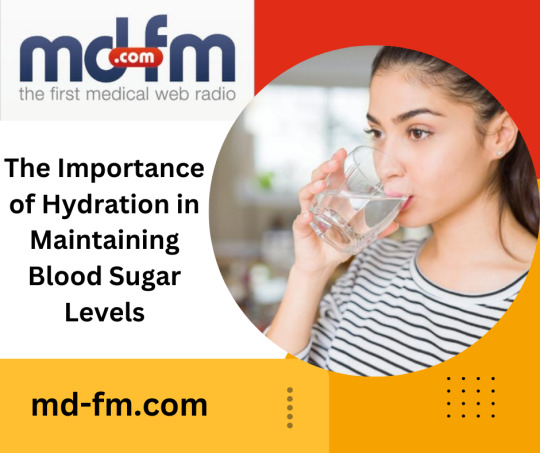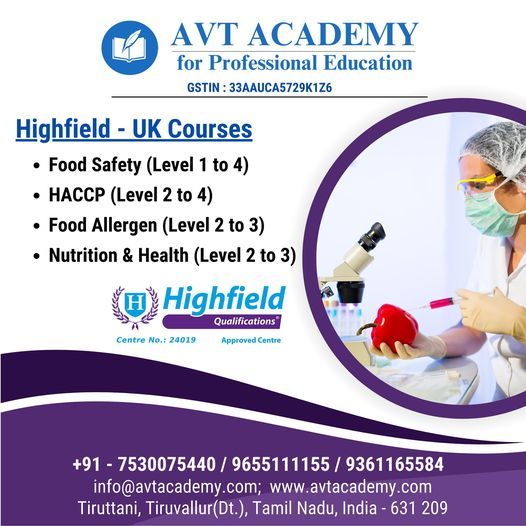#nutritionandhealth
Explore tagged Tumblr posts
Text
**Food & Drinks: Nourishment for the Body and Soul**

Food and drinks are not merely sustenance for our physical bodies; they are an essential part of our daily lives, culture, and well-being. The choices we make regarding what we consume have a profound impact on our health, happiness, and even our connection with others.
**The Pleasure of Taste**
One of the most remarkable aspects of food and drinks is their ability to delight our senses. The flavors, textures, and aromas that grace our palates can bring immense pleasure. Whether it’s the warmth of a freshly baked loaf of bread, the burst of sweetness from a ripe berry, or the complex layers of a well-prepared dish, our taste buds are constantly treated to a symphony of sensations.
Food also has the remarkable power to evoke memories and emotions. A simple meal can transport us back to our grandmother’s kitchen or a bustling marketplace in a foreign land. Food is a universal language that can create connections and foster bonds between people from diverse backgrounds.
**Nutrition and Health**
Beyond the immediate sensory pleasures, food and drinks play a pivotal role in our overall health and well-being. They are the source of vital nutrients, energy, and hydration that our bodies require to function optimally. A balanced diet that includes a variety of food groups is essential for maintaining good health.
In an age where processed and convenience foods are prevalent, it is crucial to make informed choices about what we consume. Fresh fruits, vegetables, lean proteins, and whole grains provide the nutrients our bodies need while minimizing the intake of unhealthy fats, sugars, and additives. Eating well is a key factor in preventing various health issues, from heart disease to obesity.
**Cultural Significance**
Food and drinks are also intertwined with cultural traditions and identity. Every culture has its unique culinary heritage, which reflects its history, values, and way of life. Traditional dishes and recipes passed down through generations are a testament to the importance of food as a cultural touchstone.
Food can serve as a bridge between different communities, fostering understanding and appreciation for diverse cultures. Exploring the cuisines of other regions is a delightful way to learn about the world and develop a sense of unity and harmony among people from all walks of life.
**The Joy of Sharing**
The act of sharing a meal is a universal symbol of togetherness. It’s a time to connect with loved ones, friends, or even strangers. Whether it’s a family dinner, a holiday feast, or a casual gathering, food and drinks have the power to bring people closer.
Cooking and sharing a meal can be a creative and nurturing experience. It’s an opportunity to express love and care for others through the act of preparing and offering food. The simple gesture of sharing a meal can convey emotions and build bonds that words alone often cannot.
**Conclusion**
Food and drinks are more than mere sustenance; they are a celebration of life, health, culture, and connection. They enrich our existence, delight our senses, and nourish our bodies. The choices we make about what we eat and how we share it with others have far-reaching effects on our well-being and the world around us. In the end, food and drinks are a source of immense pleasure and a reminder of our shared humanity.
2 notes
·
View notes
Text
What Is Tap Water? Exploring Its Composition, Safety, and Health Impacts
Introduction
Tap water is one of the most common sources of drinking water worldwide. It’s what flows out of your kitchen sink, fills your glass, and is often used in cooking and cleaning. But have you ever wondered what tap water actually is, what it contains, and if it’s truly safe to drink?
In this article, we’ll explore what tap water is, how it’s treated before reaching your home, and some potential health considerations. We’ll also discuss the benefits of tap water, its comparison with other types of water, and how to ensure the water you’re drinking is of high quality. Let’s dive into the world of tap water and discover everything you need to know!

What is Tap Water?
Tap water is the water that comes out of faucets, spigots, and taps in homes, businesses, and public spaces. It is sourced from surface water (lakes, rivers, and reservoirs) or groundwater (wells and aquifers) and undergoes a series of treatments to make it safe for public consumption. Tap water is typically supplied by local municipalities and is regulated by governmental agencies to ensure its quality.
The composition of tap water varies depending on its source and the treatment process it undergoes. It usually contains minerals like calcium and magnesium, which can contribute to its hardness, as well as trace amounts of chlorine, fluoride, and sometimes even contaminants.
How is Tap Water Treated?
Before tap water reaches your home, it goes through several stages of treatment to remove impurities, bacteria, and harmful chemicals. The primary steps in the water treatment process include:
Coagulation and Flocculation: Chemicals are added to water to cause small particles to clump together, forming larger particles called flocs.
Sedimentation: Flocs settle at the bottom of the water supply, allowing clear water to be separated and moved to the next stage.
Filtration: Water passes through layers of sand, gravel, and charcoal to remove remaining particles, bacteria, and other microorganisms.
Disinfection: Chlorine or other disinfectants are added to kill any remaining bacteria, viruses, and parasites.
Fluoridation (in some regions): Fluoride is added to help prevent tooth decay.
Each step ensures that tap water is clean, safe, and ready for use. However, even treated water can sometimes contain trace amounts of contaminants, which is why it’s essential to be aware of the quality of your local water supply.
Is Tap Water Safe to Drink?
The safety of tap water largely depends on its source and treatment process. In many countries, tap water is strictly regulated and regularly tested to ensure it meets safety standards. In the United States, for example, the Environmental Protection Agency (EPA) sets stringent guidelines for drinking water safety.
That said, there are instances where tap water may not be safe due to outdated infrastructure, contamination from chemicals or heavy metals, or poor maintenance of water pipes. One common concern is lead contamination, which can occur when lead pipes or fixtures leach into the water supply. Additionally, aging infrastructure and environmental pollution can introduce other contaminants into tap water.
If you’re unsure about the quality of your tap water, consider using a home filtration system. For more information on the benefits of home filtration versus bottled water, check out this article on Bottled Water vs. Home Filtration.

The Benefits of Tap Water
Despite some concerns, tap water has many benefits that make it a preferred choice for millions of people:
Cost-Effectiveness: Tap water is much cheaper than bottled water, making it an economical choice for daily hydration and household use.
Environmental Impact: Choosing tap water over bottled water helps reduce plastic waste and the carbon footprint associated with manufacturing and transporting bottled water.
Accessibility: Tap water is readily available in most homes and public places, providing a convenient source of hydration.
Health Benefits: Tap water often contains essential minerals like calcium and magnesium, which contribute to your daily nutritional intake. Additionally, the fluoride added to tap water in some regions helps promote dental health.
To learn more about the health benefits of drinking pure water, consider reading our article on 7 Health Benefits of Drinking Pure Water.
Potential Health Risks of Tap Water
While tap water is generally safe to drink, there are some potential risks to be aware of:
Contamination: In rare cases, tap water can become contaminated with bacteria, viruses, heavy metals (like lead), or chemicals (such as pesticides and industrial waste).
Chlorine and Byproducts: Although chlorine is added to disinfect water, it can react with organic matter to form byproducts like trihalomethanes (THMs), which may pose health risks over long-term exposure.
Hard Water: Tap water with high mineral content (hard water) can cause scale buildup in appliances and may lead to dry skin and hair.
Fluoride Sensitivity: While fluoride is beneficial for dental health, some individuals may have sensitivities or concerns about its presence in drinking water.
If you’re worried about these risks, using a water filter or installing a home filtration system can be an effective way to ensure your tap water is free from unwanted contaminants. Check out these 10 Tips for Better Health to learn more about improving your water quality at home.
How to Check the Quality of Your Tap Water
It’s important to know what’s in your tap water, especially if you rely on it for daily drinking and cooking. Here’s how you can check its quality:
Request a Water Quality Report: Most municipalities provide an annual water quality report, also known as a Consumer Confidence Report (CCR), which details the water’s source, treatment methods, and any detected contaminants.
Use a Home Water Test Kit: These kits are available at most hardware stores and can test for common contaminants like lead, chlorine, and nitrates.
Install a Water Filter: Consider using a water filter designed to remove specific contaminants based on your local water report.
Consult with Professionals: If you have concerns about your water quality, consider consulting a water specialist or public health professional.
For more tips on conserving and utilizing water effectively at home, visit Save Water at Home.
Conclusion
Tap water is a convenient and cost-effective source of hydration for millions of people worldwide. It undergoes a series of treatments to ensure it’s safe for consumption and typically contains essential minerals beneficial to our health. However, tap water quality can vary depending on its source, infrastructure, and treatment methods. Understanding your local water quality and using filtration methods when necessary can help ensure that your tap water is both safe and enjoyable to drink.
By staying informed about what’s in your tap water and taking proactive steps to maintain its quality, you can enjoy all the benefits of tap water while minimizing potential health risks. For those with specific health concerns, such as respiratory conditions, it’s also important to consider water quality when using medical equipment. Learn more about drinking water after using an inhaler to ensure you’re making the best choices for your health.
#TapWater#WaterQuality#DrinkingWater#WaterSafety#HealthandWellness#WaterFiltration#EnvironmentalHealth#PublicHealth#HomeWaterTreatment#WaterContamination#DeionizedWater#PurifiedWater#WaterPurification#LaboratoryWater#IndustrialWater#CleanWater#WaterforExperiments#Hydration#WaterConsumption#HealthyLiving#WaterIntake#DailyWaterNeeds#FitnessandHydration#StayingHydrated#DrinkingWaterTips#NutritionandHealth#BottledWater#HomeFiltration#WaterComparison#EnvironmentalImpact
0 notes
Text
youtube
Each day, we eat all kinds of food. But have we ever stopped to consider how our food choices affect our health? When we eat whatever we want and neglect our nutrition, our bodies pay the price.
Avoid some diseases by eating healthy and nutritious food. If your diet cannot provide the nutrients your body needs, you can take natural health supplements. You can check this collection of health supplements in Singapore: https://www.natures-glory.com/collections/health-supplements
You can also check these collections of healthy beans and peas: https://www.natures-glory.com/collections/beans-peas
======================================== Follow us on: Website ➡ https://www.natures-glory.com/ Facebook ➡ https://www.facebook.com/NaturesGlorySG/ Twitter ➡ https://twitter.com/natures_glorys Pinterest ➡ https://www.pinterest.com/Natures_Glory/ Instagram ➡ https://www.instagram.com/naturesglorysg/ TikTok ➡ https://www.tiktok.com/@naturesglorysingapore
#NutritionalDeficiencies#HealthAwareness#DeficiencyDiseases#VitaminDeficiency#MineralDeficiency#Malnutrition#NutritionAndHealth#Youtube
0 notes
Text
The Importance of Hydration in Maintaining Blood Sugar Levels
Hydration is a fundamental aspect of health, affecting various bodily functions, including temperature regulation, waste elimination, and cellular processes. One lesser-known but critical role of hydration is its impact on blood sugar levels. Read more: https://bit.ly/3KQvp4O

#bloodsugarregulation#hydrationandhealth#diabetesprevention#insulinfunction#kidneyhealth#hydrationtips#waterintake#healthylifestyle#nutritionandhealth#bloodglucosecontrol#HydrationAwareness#healthbenefitsofwater#diabetesawareness#electrolytebalance#hydrationimportance#ManagingDiabetes#HealthyDietTips#fitnessandhydration#dehydrationeffects
0 notes
Text

Top 10 Nutrition & Fitness Hacks for Real Results
Achieving optimal nutrition and fitness can seem like an uphill battle. With conflicting information and fad diets prevalent, it’s essential to focus on strategies that deliver real, sustainable results. By incorporating these top 10 nutrition and fitness hacks into your lifestyle, you can unlock your full potential and achieve your health goals. Read More...
#nutritionandfitness#nutrition#fitness#nutritionplan#healthylifestyle#nutritionexpert#health#nutritionforlife#nutritionscience#fitnessmotivation#nutritionadvice#nutritioncoaching#nutritionfood#nutritionista#nutritiontips#nutritionprogram#nutritionsystems#nutritionhelp#gymadict#gymwomen#fitnessmantra#fintesmantragym#fintessmantrasgym#gymhealth#fitnessmantras#nutritionsaine#nutritionstation#gymspo#fitnessandnutrition#nutritionandhealth
1 note
·
View note
Text
Best Gastroenterologist in Pune - Dr. Rupesh Lunkad
As we step into a new year, it's natural to reflect on our health and well-being. After the indulgence of the holiday season, many of us are motivated to make healthier choices. A crucial aspect of good health is the relationship between nutrition and our digestive system. To delve deeper into this topic, we have the privilege of speaking with Dr. Rupesh Lunkad, one of the best gastroenterologists in Pune.
Dr. Rupesh Lunkad is Best Gastroenterologist in Pune with extensive experience in diagnosing and treating a wide range of digestive disorders. He is passionate about promoting digestive health through proper nutrition and lifestyle changes.
The Importance of Nutrition in Digestive Health:
Nutrition plays a vital role in maintaining a healthy digestive system. A balanced diet provides essential nutrients that support the proper functioning of our gastrointestinal tract. Dr. Lunkad emphasizes the importance of incorporating fiber-rich foods, such as fruits, vegetables, and whole grains, into our diet. Fiber aids in digestion, promotes regular bowel movements, and helps prevent constipation.
Furthermore, Dr. Lunkad advises against excessive consumption of processed foods, sugary snacks, and fatty foods, as they can contribute to digestive issues such as acid reflux, bloating, and irritable bowel syndrome (IBS). He encourages his patients to opt for lean proteins, healthy fats, and a variety of colorful fruits and vegetables to ensure a well-rounded diet.

The Role of a Gastroenterologist:
Best Gastroenterologist in Pune, like Dr. Rupesh Lunkad, specializes in diagnosing and treating disorders of the digestive system. These can range from common conditions like acid reflux and gastritis to more complex issues such as inflammatory bowel disease (IBD) and liver disease.
Dr. Lunkad emphasizes the importance of seeking professional medical advice if you experience persistent digestive symptoms such as abdominal pain, bloating, diarrhea, or constipation. Early diagnosis and treatment are essential for managing digestive disorders and preventing complications.
In addition to medical treatment, Dr. Lunkad believes in the power of lifestyle modifications to improve digestive health. He encourages his patients to maintain a healthy weight, exercise regularly, and avoid smoking and excessive alcohol consumption.
Looking Ahead:
As we embark on a new year, let's prioritize our digestive health by making informed dietary choices and seeking professional medical advice when needed. With the guidance of experts like Dr. Rupesh Lunkad, we can achieve good food, good health, and a good new year.
Conclusion:
In conclusion, good food and good health go hand in hand, especially when it comes to our digestive system. By following a balanced diet, seeking medical advice when needed, and incorporating healthy lifestyle habits, we can ensure optimal digestive health and overall well-being. Dr. Rupesh Lunkad, one of the Best Gastroenterologist in Pune is dedicated to helping individuals achieve and maintain a healthy digestive system. Let's make this new year a year of good food, good health, and a fresh start for our digestive health.
#PuneGastroenterology#DigestiveHealth#PuneDoctors#HealthyLiving#GoodFoodGoodHealth#Gastroenterologist#PuneHealthcare#NewYearNewYou#HealthTips#DrRupeshLunkad#HealthyDigestion#PuneMedicalExperts#GastroenterologyExpert#PuneSpecialists#GastrointestinalHealth#NutritionAndHealth
0 notes
Text
Healthy Habits to Prevent Kidney Stones
Understanding the Causes of Kidney Stones Hello. Kidney stones are caused by small pumice stones that form in the kidneys as crystals or crystal aggregates. It can be difficult to pass through the urinary system, causing pain and discomfort. The most common cause of kidney stones is dehydration. If you do not drink enough fluids or if you are chronically dehydrated, your urine becomes…

View On WordPress
#Dehydration#GeneticFactors#HealthPrevention#HealthyHabits#Hydration#KidneyHealth#KidneyStones#NutritionAndHealth#RegularCheckUps#UrineSystem
0 notes
Text
"The Fascistic Connection Between Chiropractic Care and Holistic Wellness: An Unraveling Journey"
If you’ve ever felt that sweet relief following a good stretch in the morning, you’ve touched on the fringes of what chiropractic care can offer. Chiropractic care is a holistic approach that promotes overall well-being by focusing primarily on the spine—the superhighway of our nervous system. Understanding Chiropractic Care Chiropractic care is rooted in the understanding that the body is a…

View On WordPress
#chiropractic#chiropracticcare#chiropractor#holisticwellness#nutritionandhealth#physicalmentalhealth#vennchiropractic
0 notes
Text
Explore the vital link between sports, nutrition, and human health. Discover how a balanced diet and regular physical activity can enhance wellness
0 notes
Text
Nourish to Flourish: The Art of Nutrition in Preventing Obesity
Nourishing Choices: Exploring the Role of Nutrition in Obesity Prevention” In the intricate dance of factors influencing our health, nutrition takes center stage as a key player in the prevention of obesity. This article delves into the profound impact of dietary choices, unraveling the intricate relationship between nutrition and maintaining a healthy weight. The Culinary Canvas: Crafting a…
View On WordPress
0 notes
Text

Aloulose is a rare sugar that has a taste and function similar to sugar, is almost calorie free, and has been approved by the FDA for use in food and beverage products, making it an excellent alternative to sugar.
Aloulose #naturalsweeteners #nutritionandhealth #sugar
9 notes
·
View notes
Text

𝗔𝗩𝗧 𝗔𝗰𝗮𝗱𝗲𝗺𝘆
𝗛𝗮𝗽𝗽𝘆 𝗘𝗶𝗱 𝗔𝗹-𝗔𝗱𝗵𝗮 𝟮𝟬𝟮𝟯
"𝗔 𝘃𝗲𝗿𝘆 𝗵𝗮𝗽𝗽𝘆 𝗮𝗻𝗱 𝗽𝗿𝗼𝘀𝗽𝗲𝗿𝗼𝘂𝘀 𝗘𝗶𝗱 𝗔𝗹-𝗔𝗱𝗵𝗮 𝗳𝗿𝗼𝗺
𝗔𝗩𝗧 𝗔𝗰𝗮𝗱𝗲𝗺𝘆 𝗳𝗼𝗿 𝗽𝗿𝗼𝗳𝗲𝘀𝘀𝗶𝗼𝗻𝗮𝗹 𝗘𝗱𝘂𝗰𝗮𝘁𝗶𝗼𝗻"
𝗛𝗶𝗴𝗵𝗳𝗶𝗲𝗹𝗱 - 𝗨𝗞
1. Food Safety (Level 1 to 4)
2. HACCP (Level 2 to 4)
3. Food Allergen (Level 2 to 3)
4. Nutrition & Health (Level 2 to 3)
𝗦𝗽𝗲𝗰𝗶𝗮𝗹 𝗢𝗳𝗳𝗲𝗿 𝗖𝗼𝘂𝗿𝘀𝗲 𝗙𝗲𝗲𝘀
Level 1 - INR 3,399/-
Level 2 - INR 4,499/-
Level 3 - INR 7,999/-
Level 4 - INR 15,999/-
𝗔𝗺𝗲𝗿𝗶𝗰𝗮�� 𝗛𝗦𝗜 - 𝗨𝗦𝗔
MEDIC First Aid Training
MEDIC First Aid Train the Trainer
𝗡𝗗𝗧 𝗟𝗲𝘃𝗲𝗹 𝟮 𝗖𝗼𝘂𝗿𝘀𝗲𝘀
1. Visual Testing
2. Liquid Penetrant Testing
3. Magnetic Particle Testing
4. Ultrasonic Testing
5. Radiographic Testing
6. Thermal/Infrared Testing
Contact Us:
Mob:
+919361165584
+917530075440
+919655111155
Email:
Web:
www.avtacademy.com
#foodsafetycourse#foodsafetycourses#foodsafetyofficer#foodsafetytraining#foodsafetytrainingcourse#foodtechnology#EidalAdha#EidAlAdha2023#cateringcolleges#CateringTechnology#foodmanufacturing#foodcatering#foodcateringservices#foodretail#foodretailers#safety#haccpcertified#foodallergies#foodallergyawareness#nutritionandhealth#firstaid#firstaidcourse#firstaidtraining#medicfirstaid#NDT
2 notes
·
View notes
Text
What Is Deionized Water? Understanding the Purity, Benefits, and Uses of DI Water
Introduction
When we think of pure water, images of crystal-clear lakes or pristine bottled water might come to mind. But did you know that there’s a type of water even purer than regular tap or bottled water? It’s called deionized water (often abbreviated as DI water), and it goes through a unique process to remove almost all of its mineral content. This ultra-pure water is essential for many applications, ranging from laboratory experiments to specific industrial processes. So, what exactly is deionized water, and why is it considered one of the purest forms of water?
In this article, we’ll explore the science behind deionized water, how it’s different from other types of purified water, its benefits, and where it’s used. Let’s dive into the fascinating world of DI water!

What is Deionized Water?
Deionized water is a type of purified water that has had almost all of its mineral ions—such as calcium, magnesium, sodium, chloride, and sulfate—removed. The process of deionization involves the use of special resins that exchange positively and negatively charged ions with hydrogen and hydroxyl ions. This results in water that is exceptionally low in mineral content.
Unlike typical filtration methods, which may only remove solid particles and impurities, deionization targets and removes dissolved salts and minerals, making it one of the most refined forms of water. The result is water that is highly pure and has a very low electrical conductivity.
Deionized Water vs. Distilled Water
Deionized water is often confused with distilled water, but the two are not the same. Distilled water is produced by boiling water and then condensing the steam back into liquid form, which removes many impurities but not necessarily all ions. On the other hand, deionized water specifically removes dissolved ions through a chemical process, making it purer than distilled water.
If you're interested in comparing deionized water with other forms of water purification, check out our article on Bottled Water vs. Home Filtration.
Benefits of Deionized Water
So, why is deionized water so valuable, and where is it used? Let’s explore some of its key benefits:
Ultra-Purity: Deionized water is almost completely free from dissolved mineral ions, making it ideal for use in laboratories and medical facilities where even the smallest impurity can affect results.
Non-Reactive: Due to its lack of dissolved ions, DI water is non-reactive, making it perfect for use in sensitive equipment like car batteries, steam irons, and cooling systems.
Effective Solvent: The absence of ions in deionized water makes it an excellent solvent for chemical processes and experiments. It can also be used to clean surfaces without leaving mineral deposits.
Improved Health Benefits: Although drinking deionized water isn’t common, it can be used in specific health scenarios where mineral-free water is required. If you’re curious about the benefits of drinking pure water, check out these 7 Health Benefits of Drinking Pure Water.

Common Uses of Deionized Water
Deionized water has a wide range of applications across various industries:
Laboratories: Used for experiments, equipment cleaning, and as a base for chemical solutions.
Pharmaceuticals: Used in the preparation of certain medications and for cleaning lab equipment.
Manufacturing: Used in electronics manufacturing to prevent contamination and in automotive industries for car battery production.
Healthcare: Used in sterilization processes and for making saline solutions.
Household Appliances: Often used in steam irons and humidifiers to prevent scale buildup.
If you're interested in how to incorporate pure water into your daily life at home, consider reading our guide on How to Drink Pure Water at Home: 10 Tips for Better Health.
Should You Drink Deionized Water?
While deionized water is excellent for industrial and laboratory use, its suitability for drinking is often debated. DI water lacks essential minerals like calcium and magnesium that our bodies need. Drinking it in large quantities could lead to mineral deficiencies or disrupt the body’s electrolyte balance.
That being said, using DI water for short-term purposes or specific health needs may be beneficial. If you have health concerns or use medical equipment like inhalers, read our guide on Drinking Water After Using an Inhaler to understand how water quality affects health.
How Deionized Water is Produced
The production of deionized water involves a process called ion exchange. This method uses ion-exchange resins that attract and remove mineral ions from water. There are two types of resins used:
Cation Exchange Resins: Replace positive ions like calcium and magnesium with hydrogen ions.
Anion Exchange Resins: Replace negative ions like chloride and sulfate with hydroxide ions.
Once these ions are removed, the remaining hydrogen and hydroxide ions combine to form pure water (H₂O). This process ensures that the water is free from most impurities and has a high level of purity.
Environmental Impact of Deionized Water
While deionized water is beneficial in many applications, it’s essential to consider its environmental impact. The ion exchange process often involves the use of chemicals that must be handled and disposed of properly. Additionally, deionized water should not be used excessively in everyday cleaning or gardening because it can strip beneficial minerals from surfaces and soil.
If you’re looking for ways to conserve water while maintaining high standards of purity, check out our tips on Saving Water at Home.
Conclusion
Deionized water is one of the purest forms of water available, making it invaluable in laboratories, healthcare, and manufacturing. Its unique purification process removes almost all dissolved ions, ensuring a high level of purity. However, while DI water is excellent for non-consumable purposes, it’s not typically recommended for regular drinking due to its lack of essential minerals.
Understanding how and where to use deionized water can help you make the best decision for your needs, whether it’s for industrial applications or maintaining pure water at home. For more insights on drinking pure water and health, visit 10 Tips for Better Health.
By knowing the benefits and limitations of DI water, you can choose the right type of purified water for any situation, ensuring both safety and efficiency in your water usage.
#TapWater#WaterQuality#DrinkingWater#WaterSafety#HealthandWellness#WaterFiltration#EnvironmentalHealth#PublicHealth#HomeWaterTreatment#WaterContamination#DeionizedWater#PurifiedWater#WaterPurification#LaboratoryWater#IndustrialWater#CleanWater#WaterforExperiments#Hydration#WaterConsumption#HealthyLiving#WaterIntake#DailyWaterNeeds#FitnessandHydration#StayingHydrated#DrinkingWaterTips#NutritionandHealth#BottledWater#HomeFiltration#WaterComparison#EnvironmentalImpact
0 notes
Text

#foodsafety #foodsafetytraining #foodsafetycourse #foodsafetycourses #nutritioncourses #nutritionandhealth #nutritionandhealthtraining #foodsafety #foodsafetycourse #foodsafetycourses #foodsafetytrainingcourse #foodsafetytrainingcourses #haccpcourse #haccpcourses #haccptraining #haccptrainingcourse #vt #pt #tt #ut #mt #rt #ndt #ndttraining #ndtcourse #foodallergn #foodallergncourse #foodallergncoursetraining #foodsafetycertification #haccpcertification
0 notes
Text

Mastering Nutrition and Fitness: Your Roadmap to Total Wellness
With the rise of sedentary lifestyles and processed foods, mastering nutrition and fitness has become a cornerstone of achieving total wellness. By understanding the intricate relationship between what we eat and how we move, we can pave the way for a healthier, happier life. Read More...
#nutritionandfitness#nutrition#fitness#nutritionplan#healthylifestyle#nutritionexpert#health#nutritionforlife#nutritionscience#fitnessmotivation#nutritionadvice#nutritioncoaching#nutritionfood#nutritionista#nutritiontips#nutritionprogram#nutritionsystems#nutritionhelp#gymadict#gymwomen#fitnessmantra#fintesmantragym#fintessmantrasgym#gymhealth#fitnessmantras#nutritionsaine#nutritionstation#gymspo#fitnessandnutrition#nutritionandhealth
1 note
·
View note
Text



I received a complimentary sample of 8Greens To be honest, I ordinarily take my greens in a smoothie or as a component in a recipe, like pizza for example. Greens tend to have an earthy flavor some stronger than others. Spirulina is a unique green that's healthy and nutritious. However, it also has a rather unique taste. The tablet itself has a wonderful citrus scent. I love the flavor. It tastes like limes. This is a refreshing, fun, healthy alternative to drinking water. I honestly don't know if the product is as portable as the sample size. It'd be nicely convenient if they are; so, I can just grab and go.
#8greens#supplement#supplementsamples#samples#samplebymail#freesample#freebymail#freesamplebymail#healthychoices#nutritionandhealth#nutritiouschoices#samplereview#productreview#myexperience#blastkat
0 notes